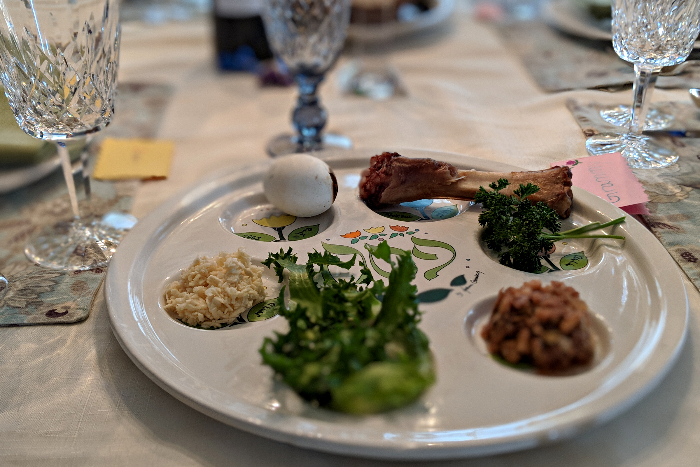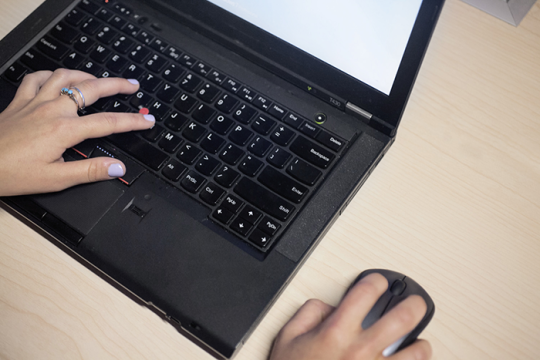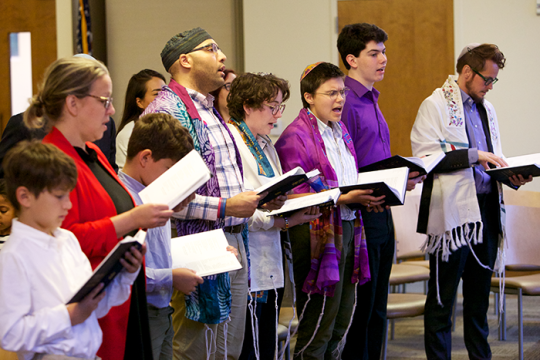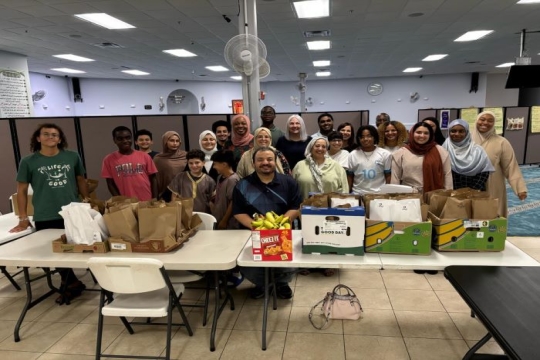
One year ago, as Passover approached the COVID-19 pandemic’s mysterious and deadly force upended our lives; at the time, it seemed as if all hope may have been lost. Miraculously, though, we pulled off the most unfamiliar seders ever – virtual, socially distanced, and yet still undeniably rooted in our tradition.
We had no idea when and how we’d get out of the Egypt of COVID-19, and there is still plenty we don’t know. And yet, when we sit down together this year, we will do so having made it through the worst part of the worst pandemic in recent memory. With the vaccine slowly freeing us from this contemporary plague, I believe we will soon begin to taste the rebirth of spring, with its hope of better days ahead.
So much has changed since last year. Our homes have become our virtual synagogues, schools, and workplaces. Small seders and Zoom seders, once unthinkable, have become the new normal. And though we do our best to glean some positivity out of the chaos, we know that for too many of us, the angel of death did not pass over our homes, forcing us to mourn without the comforting physical embrace of family and friends. We will surely notice and shed tears for the newly empty chairs and missing Zoom squares at this year’s seder. When we say Shehecheyanu, the prayer thanking God that we made it to this season, we will mean it from the depths of our souls.
Last Passover began the urgent quest to reinvent much of Jewish life – and even when we get to reconnect in-person, our synagogues and our lives will never fully return to the way things were. Yet the pandemic has highlighted that some of the ways we “do” Judaism needed to be updated. This year has been a powerful catalyst to thoughtful shifts in how we perform our holy work, and we’ve heeded the adage that a crisis is a terrible thing to waste.
As our clergy, professionals, and lay leaders, you have reinvented the ways we virtually worship and learn. You’ve adapted tremendously, leading virtual Shabbat services, holiday observances, religious school, weddings, b’nei mitzvah, and beyond. Via Facebook Live and YouTube, you’ve engaged both lifelong members and newcomers hungry for connection and spiritual meaning. With ingenuity and determination, you’ve given a masterclass in adaptive leadership.
This year, as we transition to yet another socially distanced Passover, we do so with a greater understanding of our congregations’ and families’ needs.
Our URJ team has partnered with Reform Movement affiliates to provide educational resources to navigate this year’s observances and celebrations, which will continue to be updated right up until the holiday. I’m particularly excited to announce that 10 of our Reform clergy and educators are creating short and informative videos designed to add a fun new dimension to this year’s seders; those will be available soon to add to your seder. Our RJ on the Go content has been expanded, too, to include unique, engaging Passover activities for the whole family.
During this year’s seders, when the time comes to remove a drop of wine for each of the ancient plagues, how can we not take out a few more drops for the contemporary plagues that have devastated us? As the death toll has climbed from COVID-19, so too have the unconscionable deaths from the plague of systemic racism; perhaps we will remove a drop of wine as we remember some of our Black siblings who were recently killed, including Ahmaud Arbery, Breonna Taylor, Elijah McClain, and George Floyd. This year, our Movement could have said that we couldn’t fight racial injustice while battling a global pandemic, but we knew that would be an abdication of our tradition’s moral imperatives that we “must not remain indifferent" (Deut. 22:3). That, too, is part of the sacred story we tell this year: that Reform Jews showed up, because this is what our essential religious commitments demand.
Even long after this pandemic ends, I imagine that some of the new readings and frames created for last year’s and this year’s Passovers will remain a part of our ritual, much the way epoch moments like the birth of the modern State of Israel or the Holocaust have been written into the Haggadah. After all, we are the Reform Movement – and as the late Leibel Fein reminded us, the word “reform” is not a noun, but a verb. It is part of our responsibility to keep Judaism evolving and adapting to the world around us.
At this time last year, we desperately needed our festival of liberation to prepare us for the uncertain journey that awaited us – and a year later, the very substance of Passover is so much of what we still need. This festival reminds us that the story of our people is never finished; that we are called to write new chapters and remain God’s partners in shaping the world as it ought to be. It's a story of the resilience of the Jewish people throughout the painful valleys of our history, and it's a ritual that obligates us to never lose hope.
This Passover, may we never lose hope for even a moment. May we connect, learn, reflect, and yes, celebrate, so that we may eradicate the plagues of our day and leave this unforeseen wilderness to create a world rooted in peace, love, and justice for us all.
Have something to say about this post? Join the conversation in The Tent, the communications and collaboration platform for congregational leaders of the Reform Movement. You can also tweet us or tell us how you feel on Facebook
Related Posts

Five URJ Pages to Bookmark Today

Collaboration and Connection Power Small Congregations


